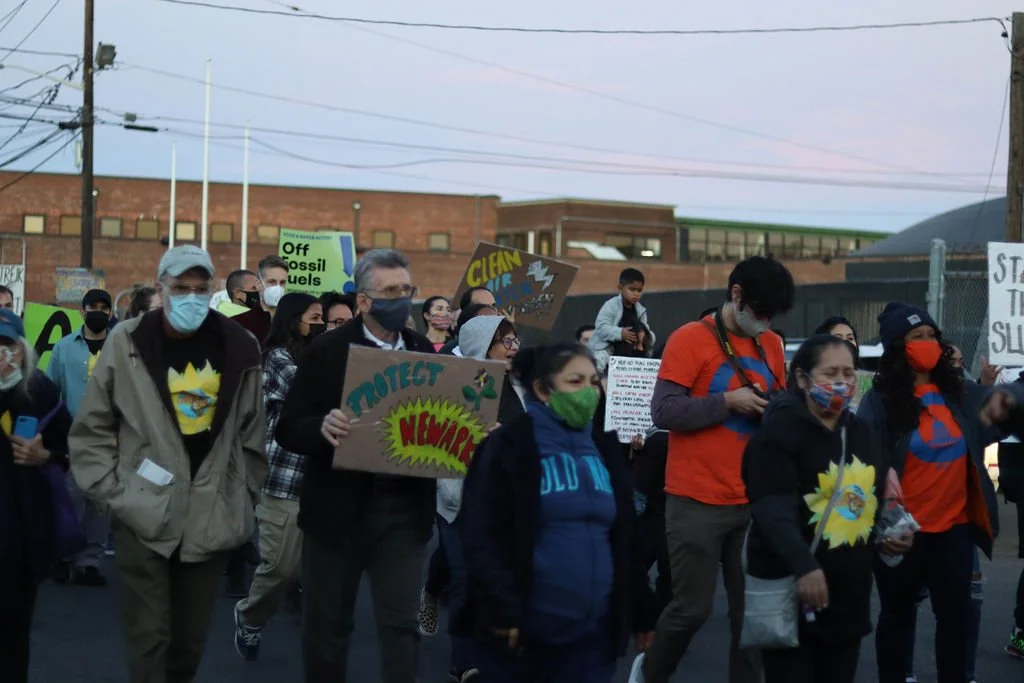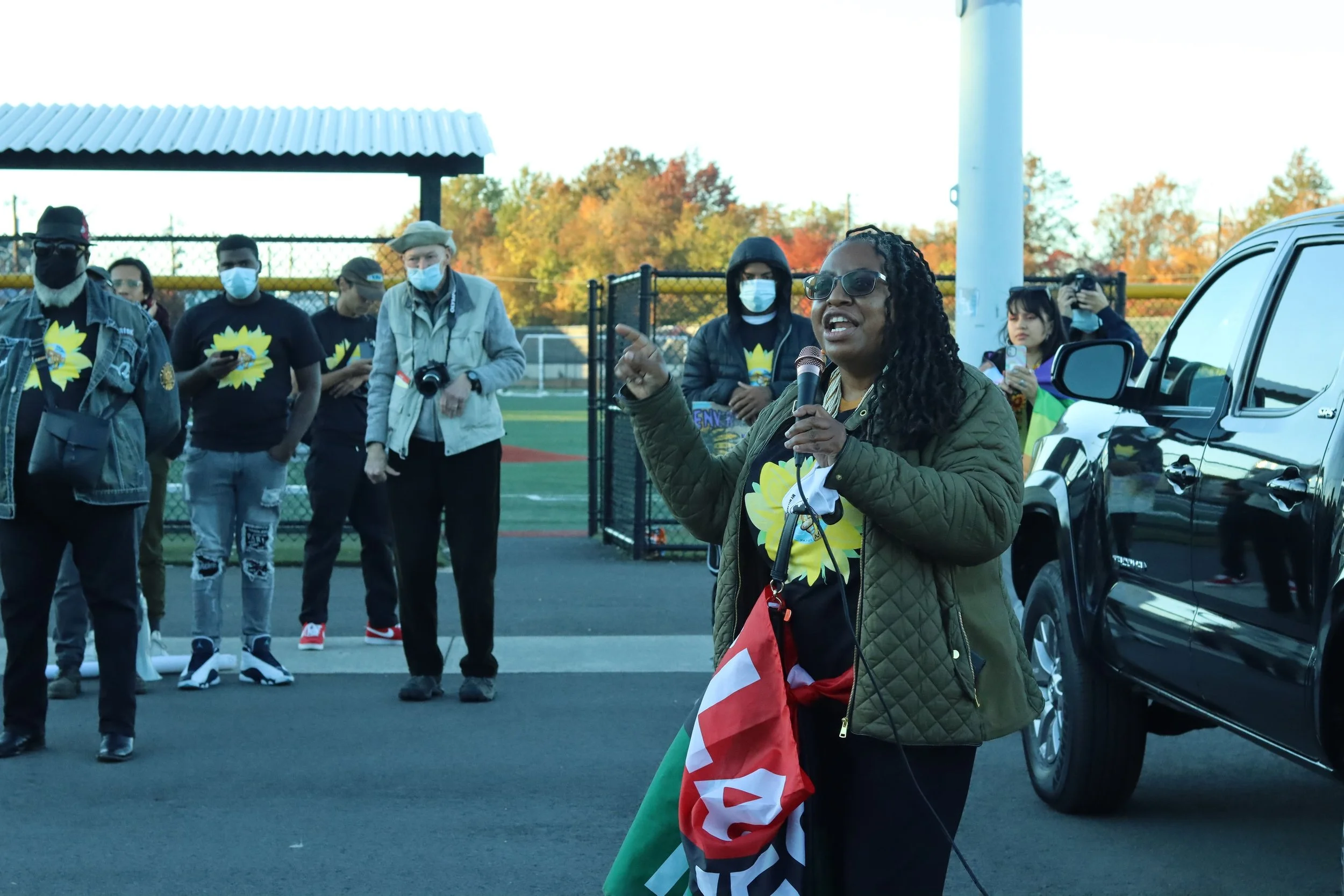‘Not in our neighborhood’ – Newark residents’ fight for clean air and water
IRONBOUND, NJ—Hundreds of community members took to the streets on Nov. 10 to demand their basic human right to a clean environment. Residents joined with The Ironbound Community Corp. (ICC) and environmental advocacy groups, including the Food & Water Watch NJ and Newark Environmental Commission to march for the termination of two proposed projects. If not stopped, advocates say plans for the Standby Power Generation Facility (SPGF) and the Aries Newark Biochar Production Facility would increase fossil fuel emissions and worsen air pollution in the Ironbound.
Both projects are under the supervision of the Passaic Valley Sewerage Commission (PVSC), one of the largest modern wastewater facilities in the U.S. The 140-acre PVSC plant has more than 8 miles of access roads and miles of utility tunnels, sewers, pipes and storm drains that service Essex, Bergen, Hudson, Union, and Passaic counties. The commission has operated the Newark Bay Treatment Plant, located in the industrial Doremus Avenue corridor, since 1924.
The proposed PVSC generator and Aries sludge plant would be built near this corridor— near places like the Delaney Hall Detention and Essex County Correctional facilities, where the occupants have little say in what happens to their environment. The plants would also be just a few miles away from the Ironbound’s residential buildings and produce emissions affecting vulnerable populations, including children and citizens served by schools and community centers in the neighborhood. Residents say that such developments continue an unjust pattern by which communities with little economic power have been relegated to carrying and dealing with the waste of more affluent ones.
Community members marching to the Passaic Valley Sewerage Commission during the ‘March for clean air’ rally in Newark, NJ on Nov. 10. (Esther Paul for Public Square)
"They're dumping on this community, said Lillian Ribeiro, a resident born and raised in the Ironbound. "It's environmental racism because they're doing it to this community. The Ironbound is mostly immigrants, people who don't speak English. So, they do this thinking no one's going to show up. So, we've got to be louder." Robeiro also called for limits on fossil fuel emission: "It's not just impacting the local residents, but the state itself, there's got to be limits."
Protesters say the plants would mean more fossil fuel emissions, traffic congestion, and toxic exposure for the people of Newark and nearby low-income populations already bearing the brunt of industrial pollution.
For instance, advocates say the Standby Power Generation facility would be powered by fracked gas—fuel produced by drilling down into the earth and injecting liquid at high pressure into rocks to release and extract the oil or gas inside. According to the Natural Resources Defense Council these fracking sites pose numerous harms, such as chemical exposure and toxic air pollution that can cause severe headaches, asthma symptoms, childhood leukemia, cardiac problems, and other illnesses.
In addition, the Aries sludge plant would take care of Newark and New York City's high concentration of human waste by having it transported through the streets by trucks. Advocates say the influx of trucks tankers would compound traffic in densely populated neighborhoods with small businesses and public transportation routes, including the NJ Transit No. 25 and 375 bus lines.
Kim Gaddy, founder and director South Ward Environmental Alliance, speaking at the ‘March for clean air’ rally at the Ironbound Recreation Center, Newark, NJ on Nov. 10 (Esther Paul for Public Square)
"We are constantly bombarded by CO2 emission, particle matters, methane, all sorts of dangerous chemicals. And we are by Passaic River, which is also polluted," said Wynnie-Fred Victor Hinds, co-chair of the Newark Environmental Commission. "We're fighting because we want the politicians and all representatives and the fossil fuel industry to take us seriously to treat us like human beings."
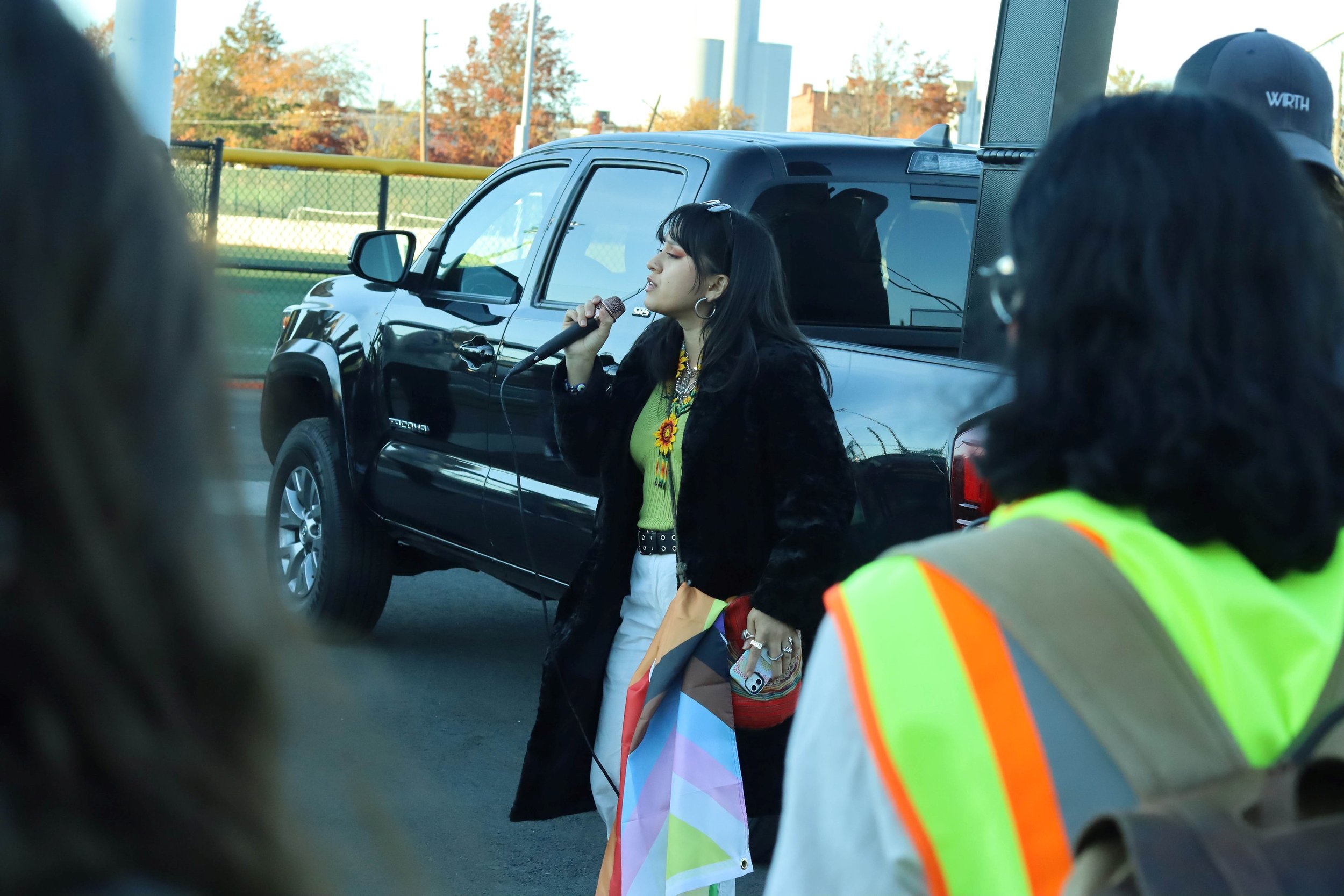

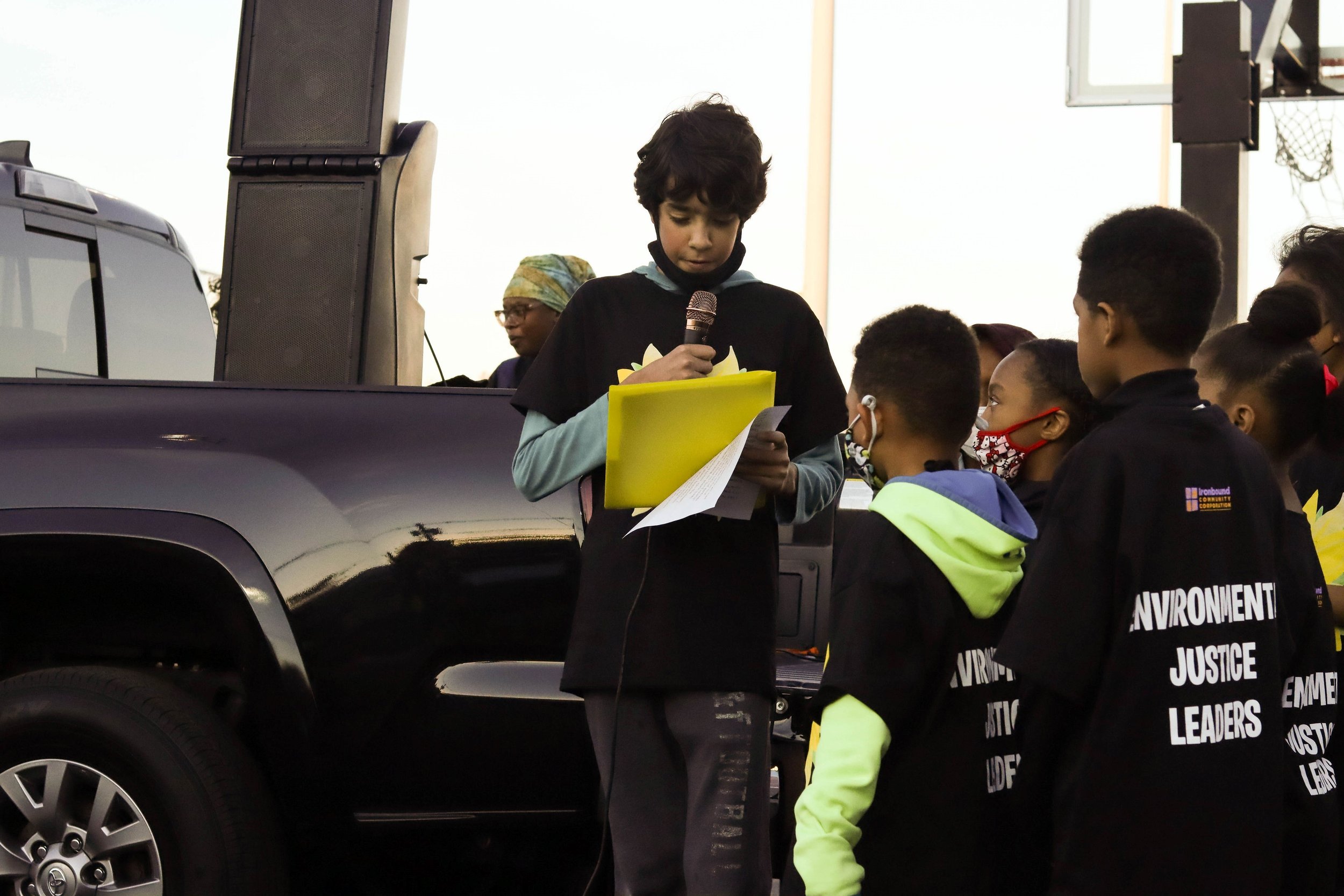

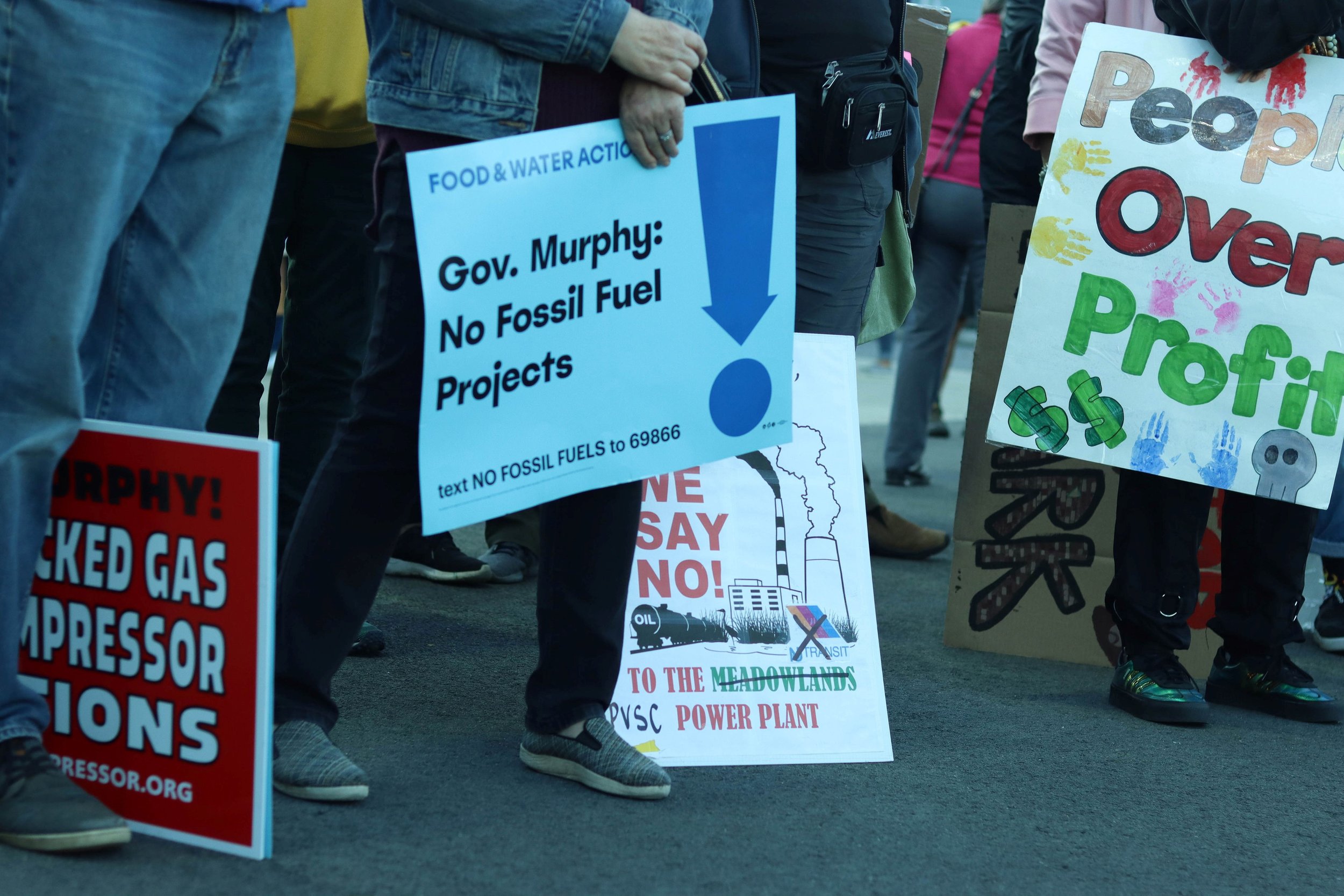
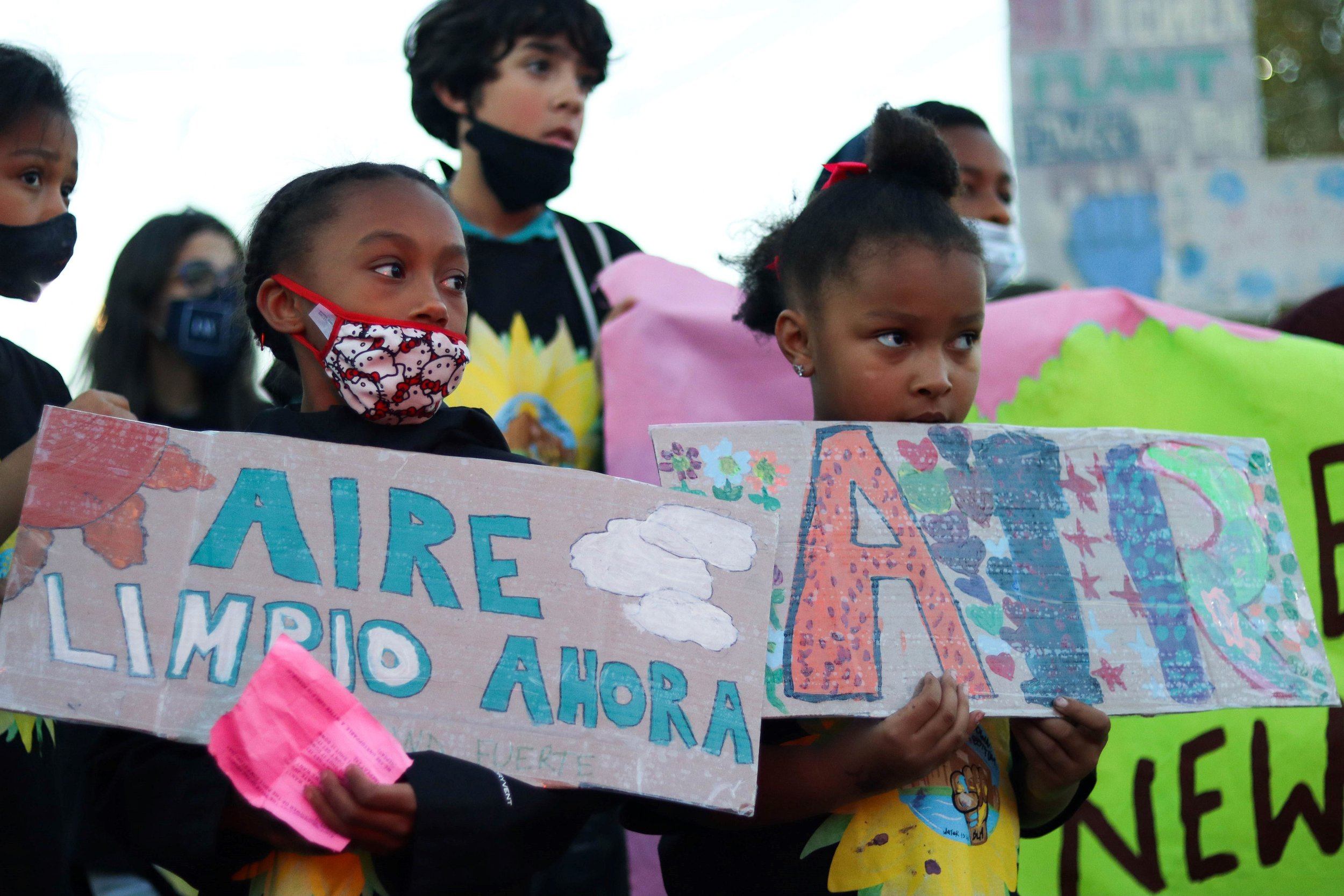
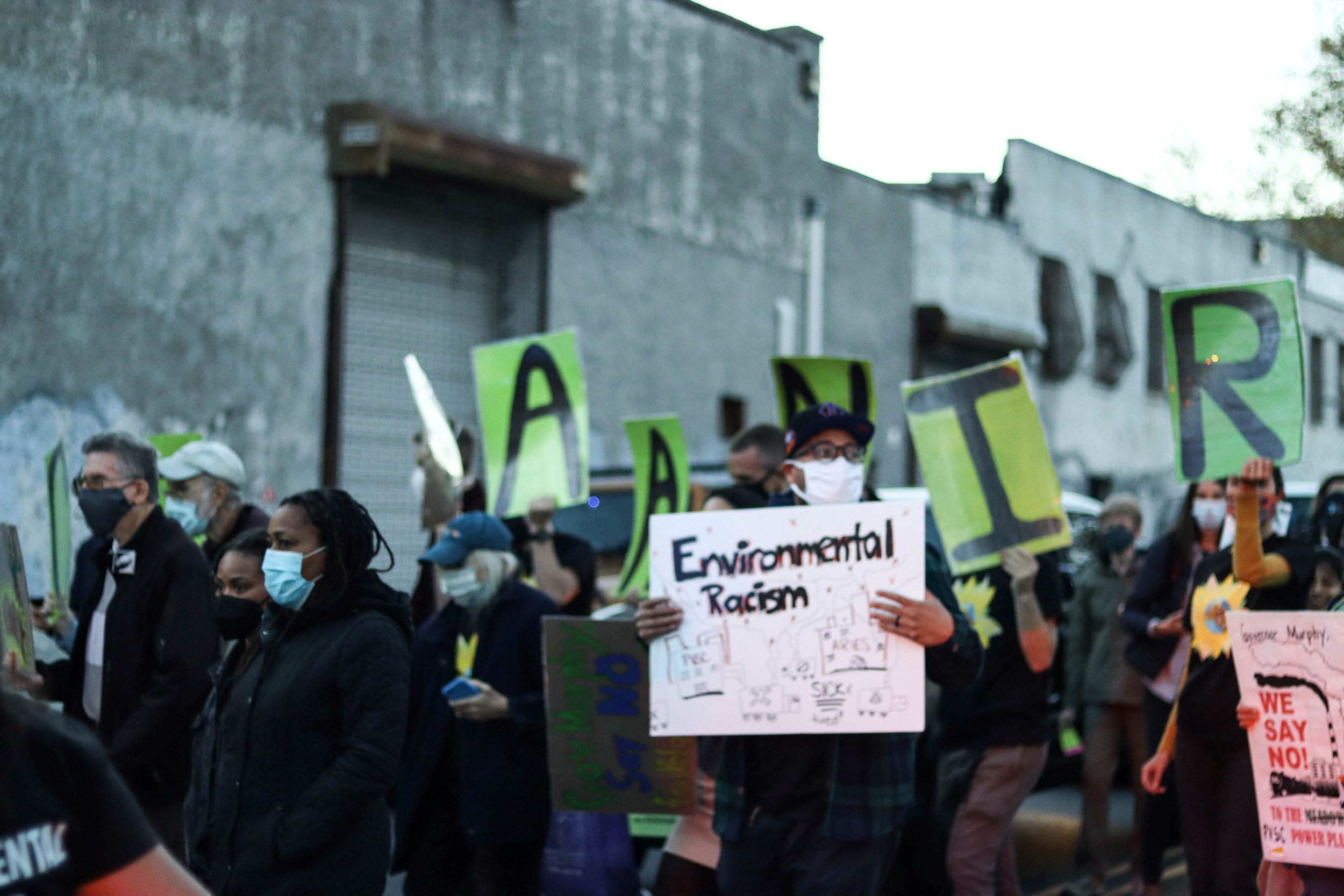
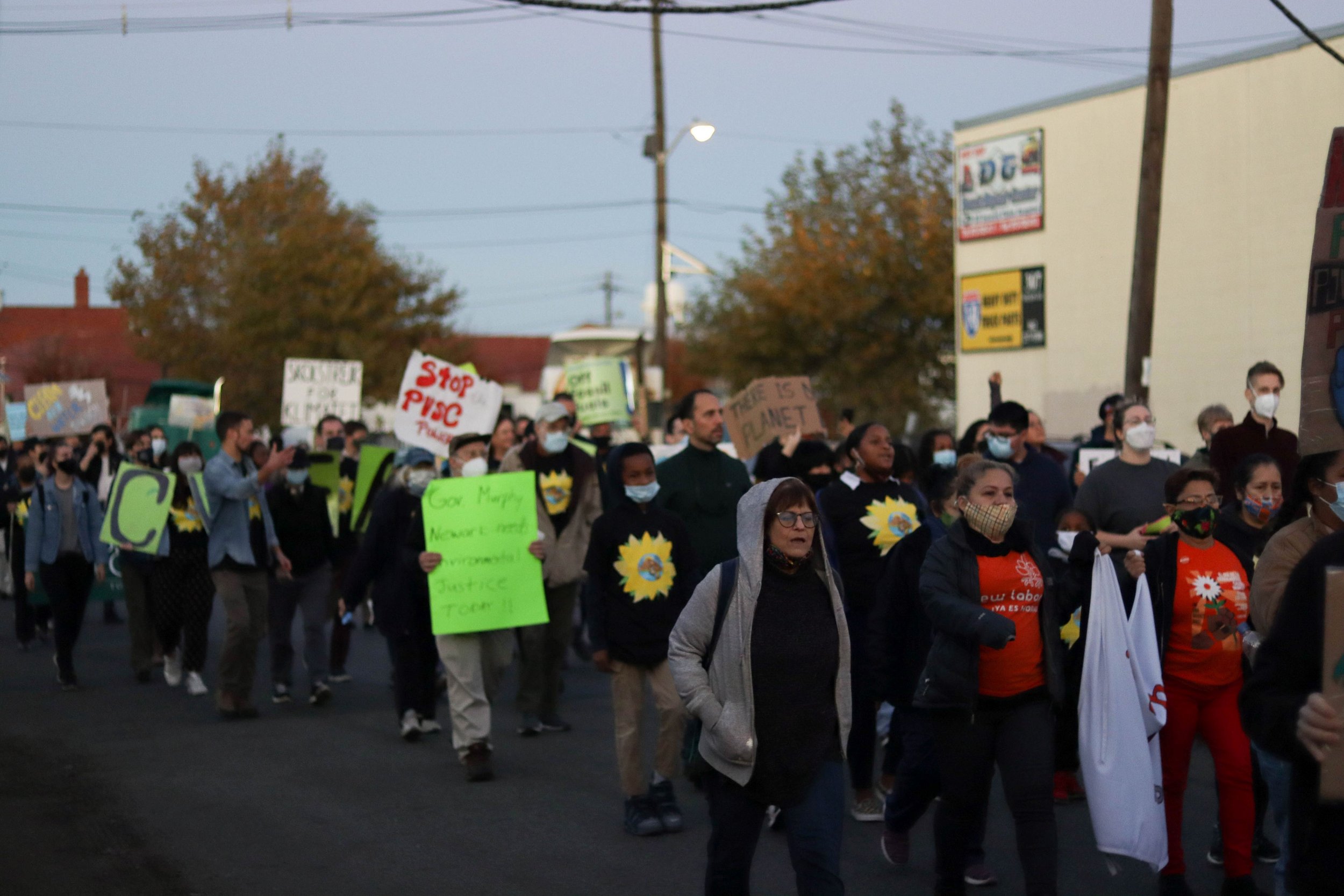
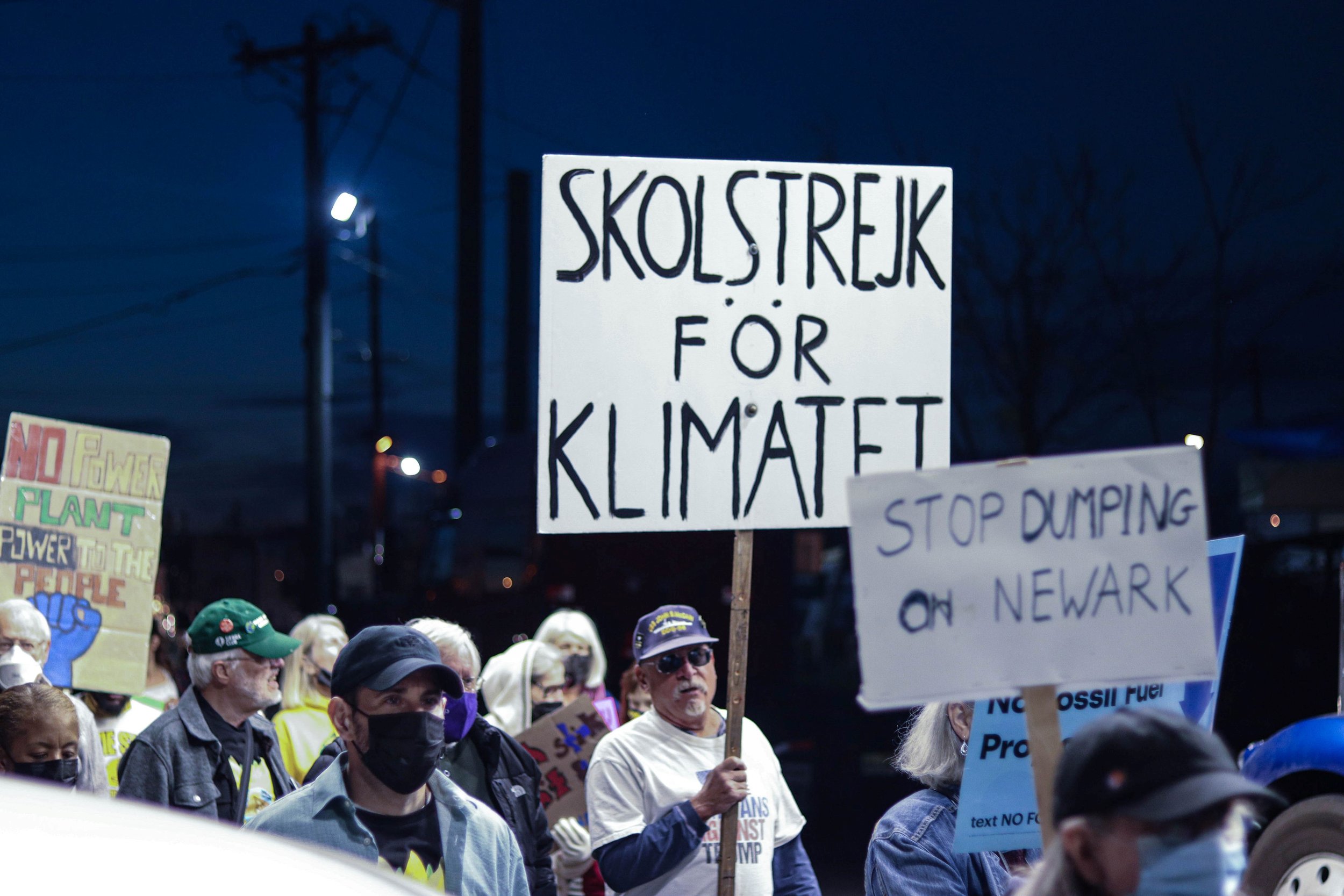
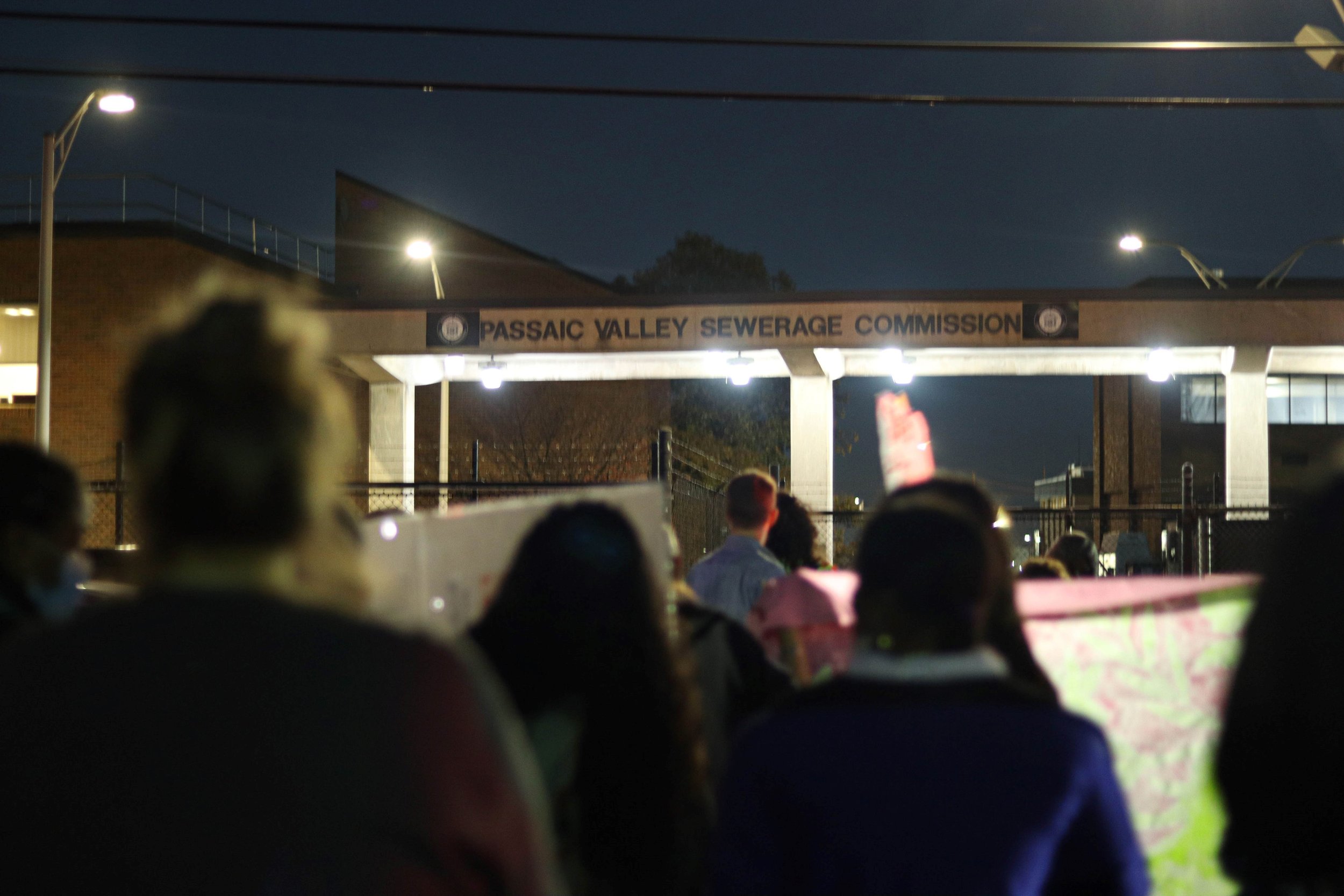
Meanwhile, the PVSC has presented the Standby Power Generation Facility — a gas-fired power plant to be built at its sewage treatment facility near the Ironbound — as a water safety solution. Plans for a backup generator site are PVSC's response to massive sewage spills into the Passaic River caused by the loss of power for three days during Hurricane Sandy in 2012.
Aries Clean Technologies — a Tennessee-based renewable energy company — is now constructing a gasification facility to process solid waste into fertilizer in Linden, NJ. The site, approved in 2019, is the first of its kind in the state. And following this successful bid, Aries aims for a favorable outcome in Newark.
In September, the company filed a lawsuit in NJ Superior Court against ICC and the Newark Zoning board to challenge an ICC appeal and recent board recent decision blocking construction plans in the Ironbound. The company insists the Newark Aries plant would assist the PVSC with water treatment efforts and take care of Newark and New York City's high concentration of human waste locally.
Maria Lopez-Nuñez, director of environmental justice and community development at Ironbound Community Corporation, giving a speech at the Ironbound Recreational center at the beginning of the ‘March for clean air’ rally on Nov. 10. (Esther Paul for Public Square)
But the Ironbound Community Corp. insists that Newark, and nearby overburdened communities, would be negatively impacted by the pollution generated by both planned facilities. Their “Stop the Sludge” campaign also warns that these facilities would violate New Jersey’s 2020 landmark measure that denies permits for new facilities posing health and environmental risks to low-income communities.
Under this law, the two projects in question need approval from the New Jersey Department of Environmental Protection in order to proceed. However, the DEP is not expected to fully implement the environmental justice law until 2022. So, activists and developers are in a race against time, each taking their case to the public.
PVSC and Aries Clean Technologies have tried to dispel concerns about pollution and move forward with project plans, but community members are still saying 'not in our neighborhood.' Although they support resilient wastewater treatment systems, Newark residents do not believe it should come at the cost of clean air for future generations.
To learn more about the Ironbound Community Corporation’s upcoming actions and the fight for clean air in Newark, text the word ‘Newark’ to the number 23321


